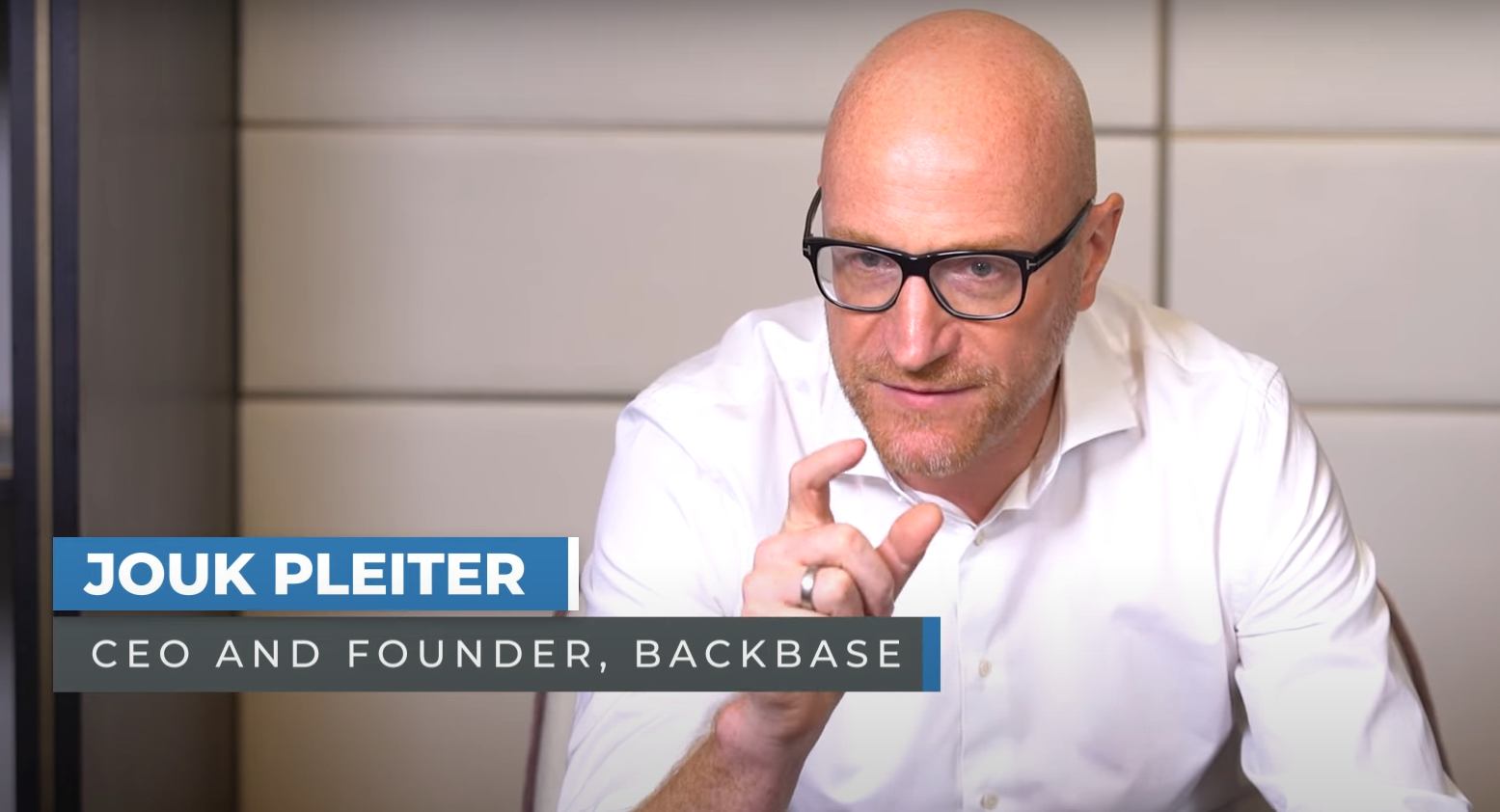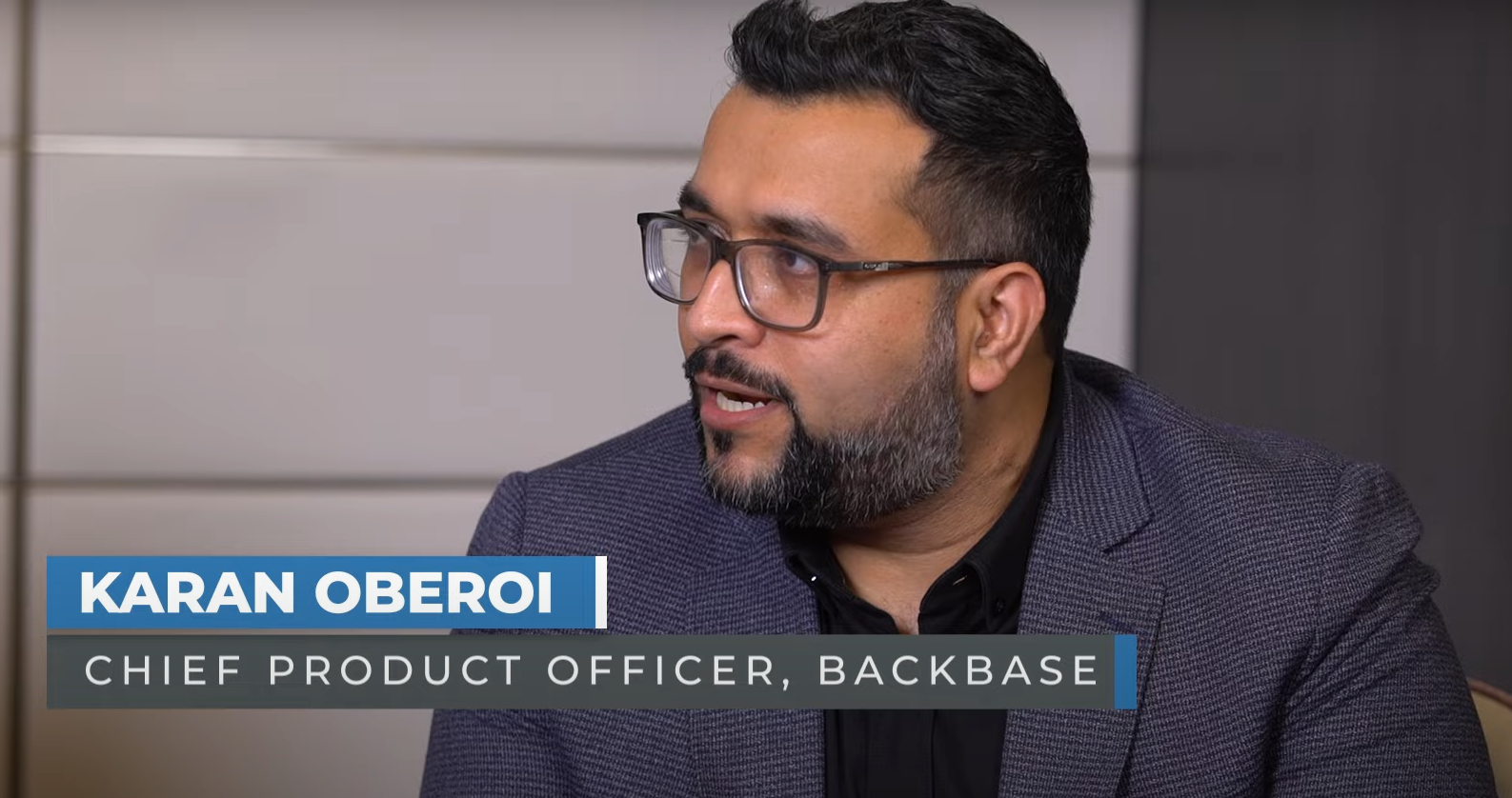The transformation, or more accurately the evolution, of the banking industry is presently underway on multiple fronts, with the sluggish migration of incumbents from inflexible legacy systems to embracing digitalisation for operational efficiency and customer experience, among others, a pressing pain point for the sector. But as noted by engagement banking provider Backbase and other thought leaders in the space, this critical shift is not happening fast enough to meet customer and shareholder expectations.
This narrative is discussed in an episode of the ‘Banking After Hours’ video series, with Backbase’s leading minds — CEO and Founder Jouk Pleiter, Chief Product Officer Karan Oberoi, and Chief Technology Officer Thomas Fuss — joining Fintech News Malaysia’s Chief Editor Vincent Fong to offer an in-depth look at how Backbase has navigated the changing tides of the fintech landscape, and how it has contributed towards the paradigm-shifting “iPhone moment” for the banking sector.
The “iPhone moment” for Banking
Much like how the iPhone came along in 2007 and shook up the mobile device market at the time, the banking segment is experiencing a tidal shift unlike anything it has experienced in the past 40 years.
But besides the operational and customer-facing fronts, the change is taking place on deeper layers too — such as banks’ undergoing core banking transformation that is characterised by the migration to cloud-based platforms, the integration of APIs and open banking to foster innovation, and a strong emphasis on regulatory compliance and real-time processing.
Modern core banking systems are designed to be flexible and scalable, capable of quickly adapting to market changes and new regulations. The incorporation of technologies like blockchain and distributed ledger technology are further enhancing security, transparency, and efficiency.
Together, these changes reflect the banking industry’s response to the demands of a digital age, one that is focused on efficiency, compliance, and most importantly, customer satisfaction.
Platform Paradigm Shift
And according to CEO Jouk, many banks in the Asia Pacific region are failing to transform with the times.
“The way it is architected today, for most traditional banks, that operating model will not survive the next ten years,”
he says firmly, drawing attention to how siloed bank technology has been for four decades. Calling the banking industry “extremely inefficient” due to its dependence on siloed architecture, the Backbase founder pointed out how the new platform-centric paradigm being championed by companies like Backbase is causing a major rethink within banking — specifically, “how to re-architect banking around the customer, instead of around the product?”
It is an interesting observation given how Backbase itself has been around for over two decades, and has evolved along with the banking space. But it was not always the case.

20 Years of Customer Centricity
In the beginning, Jouk says Backbase cast a wide net, offering technological solutions across various industries. And yet, he noted a central tenet of the company at all times,
“Backbase has always been focused on customer engagement.”
However, a deliberate pivot towards exclusively serving the banking sector marked a significant turning point in its journey.
Reflecting on this evolution, the Backbase brain trust noted noted the profound shifts in the global technological and banking environments since Backbase’s early days.
Why Backbase Narrowed Down Solely to Banking Sector
The decision to focus solely on banking was not taken lightly, says founder Jouk. It was a strategic choice aimed at tapping into the unique opportunities within the sector to profoundly impact customer experiences. Jouk explains this pivotal moment:
“10 years ago, we made one of the most important decisions in the history of the company[…] to take the platform and really focus it on a single industry, in the banking industry.”
This singular focus has allowed Backbase to hone its expertise and tailor its offerings more effectively.
At the heart of Backbase’s strategy is a commitment to putting the customer first, a principle that has driven the company to redefine its approach towards banking around customer needs and journeys. Karan articulates this customer-centric approach:
“The starting point is not the bank[…] it’s not a channel. The starting point is actually the customer.”
This ethos has been crucial in the development of Backbase’s engagement banking platform, designed to orchestrate banking services around customer needs, using technology to create personalised and efficient experiences.

Lessons and Insights from Industry Challenges
Adapting to and overcoming challenges, including transitioning from legacy systems to modern digital platforms and staying ahead in the rapidly evolving fintech sector, have been key parts of Backbase’s journey. Thomas highlights the importance of adaptability and collaboration:
“There’s a lot of collaboration[…] Backbase is 100% complementary to core banking systems[…] We are core agnostic.”
This openness to collaboration and flexibility has been fundamental to navigating the complexities of digital transformation in banking.
Backbase’s trajectory also mirrors broader trends within the banking industry, such as the shift towards platform economies and the heightened focus on financial inclusion, particularly in emerging markets.
Jouk emphasises the impact of their technology in enabling banks to extend their reach:
“The Backbase platform[…] we make sure you can scale the platform from being able to serve simple single user account needs at a low cost, while also scaling it up.”
As Backbase has grown, its leaders have consistently underscored the necessity for the banking sector to evolve in response to changing customer expectations. This includes moving beyond traditional models to create seamless, integrated customer experiences that leverage the latest in technological advancements.

Reinvention to Remain Relevant
The insights shared by Jouk, Karan, and Thomas during the ‘Banking After Hours’ discussion offer a window into the strategic thinking and innovation driving open banking pure plays like Backbase forward.
From Jouk’s reflections on the early days and strategic pivot, Karan’s focus on the primacy of customer-centric design, to Thomas’s observations on the critical role of adaptability and partnership, their comments paint a picture of a dynamic company at the forefront of the fintech revolution.
Their collective narrative not only traces the evolution of Backbase but also encapsulates the broader transformations within the banking industry. As Jouk aptly puts it,
“You have to reinvent the company a few times to stay relevant,”
highlighting the necessity of continuous innovation and adaptation in an industry characterised by rapid change.
The “platform paradigm” fronted by organisations like Backbase have the potential to radically overhaul the banking sector to meet the demands of customer personalisation and operational efficiency. With the ability to plug embedded digital features into the bank’s existing core, this modern approach to core banking transformation should reflect the industry’s receptiveness to technological advances, but cost concerns and an inability to adapt fast enough appears to be holding incumbents back.
Jouk suggests a major mindset change is necessary for banks to see the full potential of the big shift: that of upending the status quo, and taking a customer-centric approach instead of a product-driven one. Time will tell if traditional banking manages to adapt to this big shift in time, or if they fall between the (growing) cracks as digital banking and embedded options make headway in the coming years.
Watch the full discussion Banking After Hours: Is Banking Having its iPhone Moment?
- SEO Powered Content & PR Distribution. Get Amplified Today.
- PlatoData.Network Vertical Generative Ai. Empower Yourself. Access Here.
- PlatoAiStream. Web3 Intelligence. Knowledge Amplified. Access Here.
- PlatoESG. Carbon, CleanTech, Energy, Environment, Solar, Waste Management. Access Here.
- PlatoHealth. Biotech and Clinical Trials Intelligence. Access Here.
- Source: https://fintechnews.sg/94213/digital-banking-news-singapore/are-banks-ready-for-the-big-shift-backbase-on-banking-after-hours/




